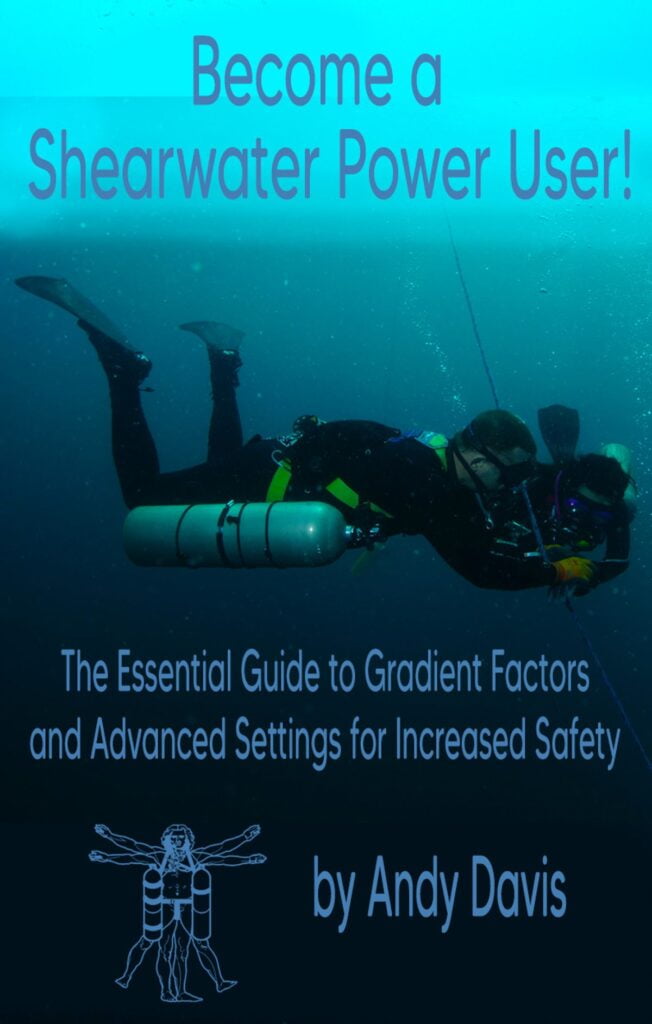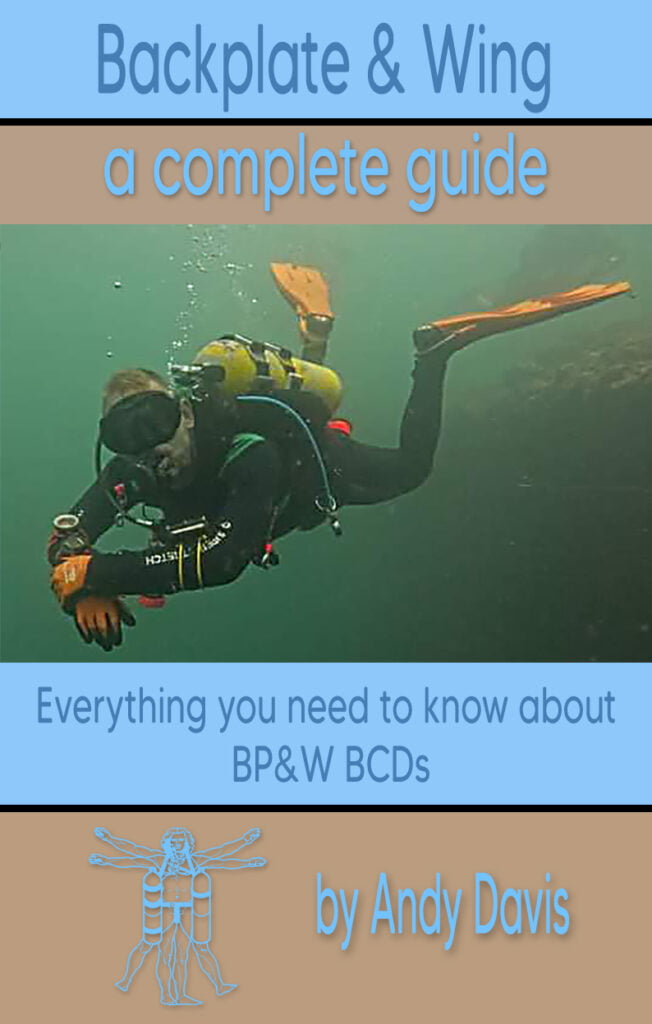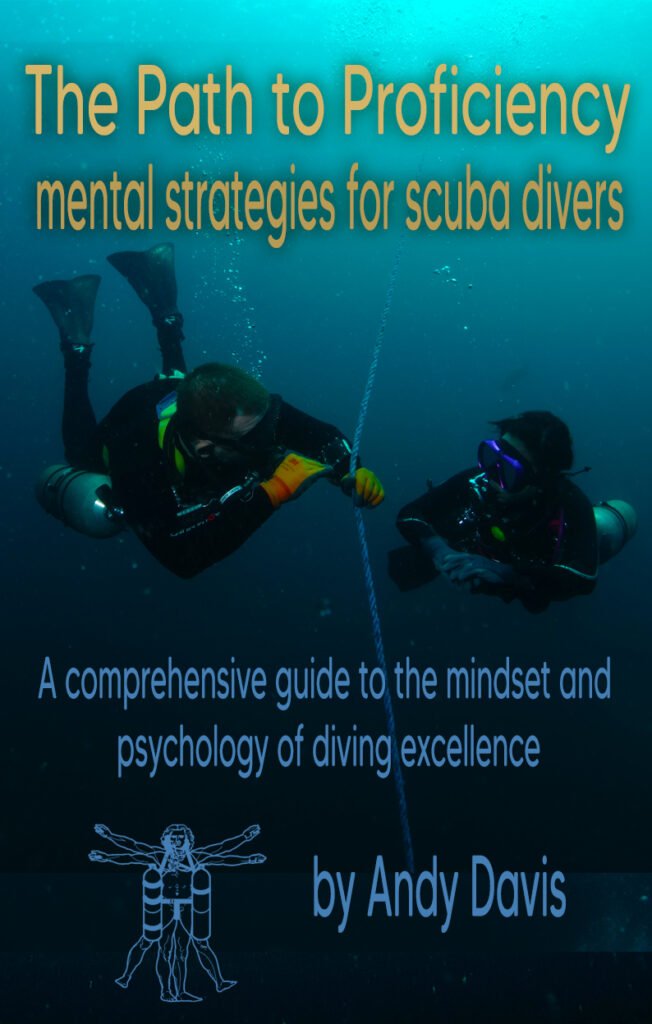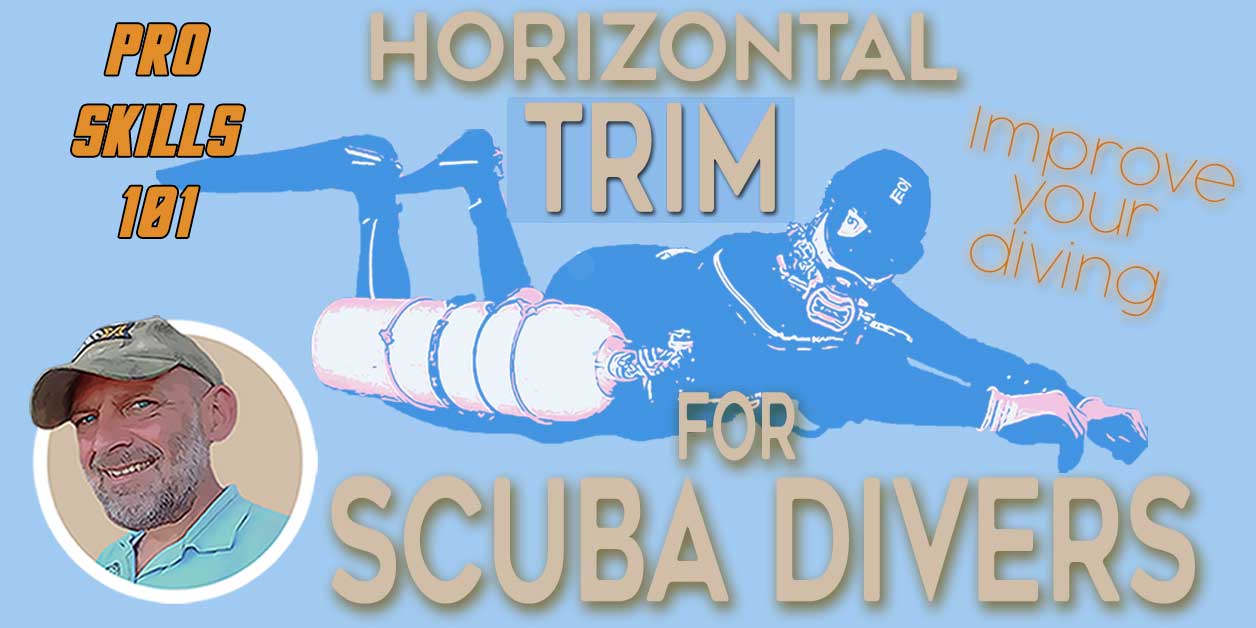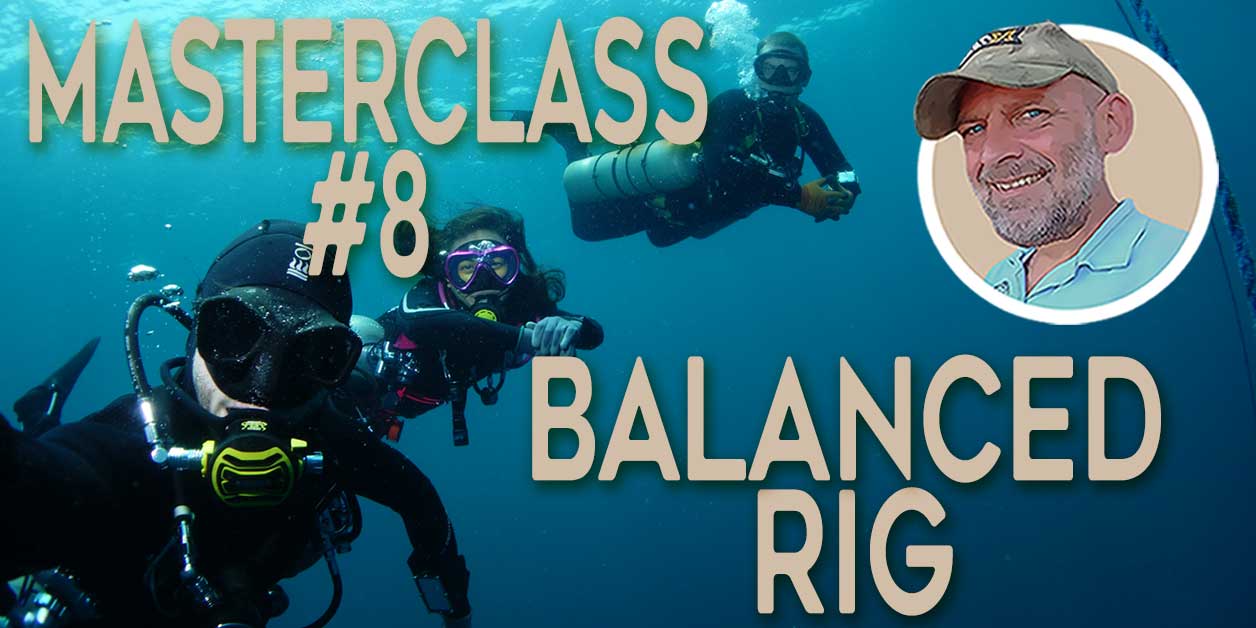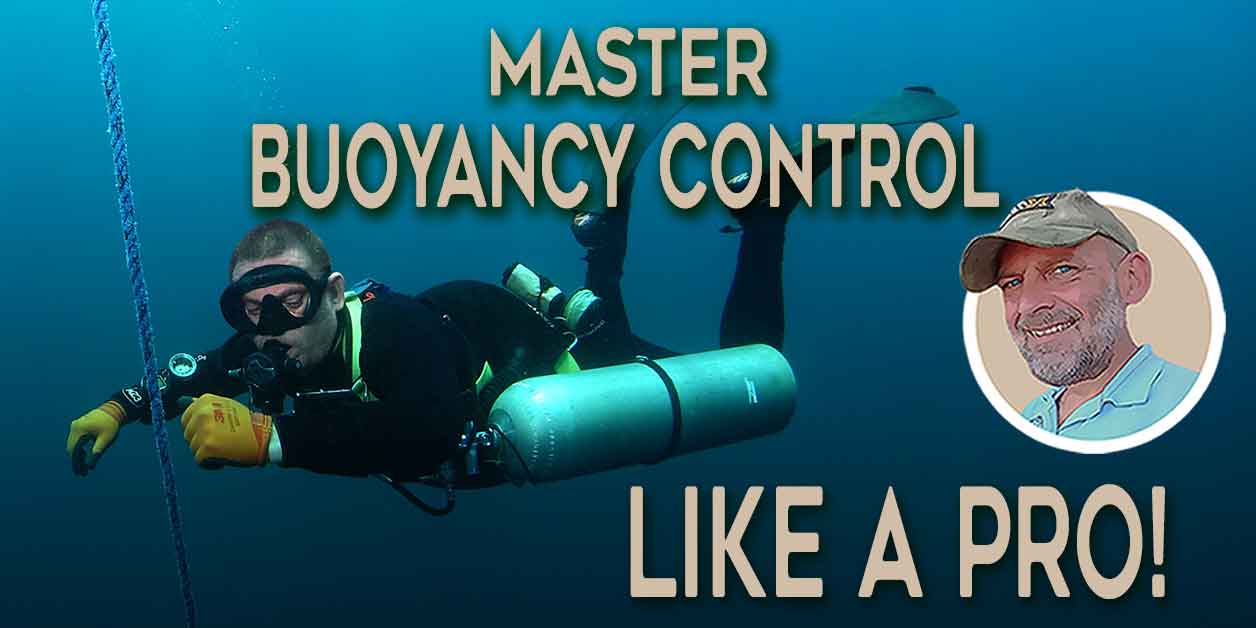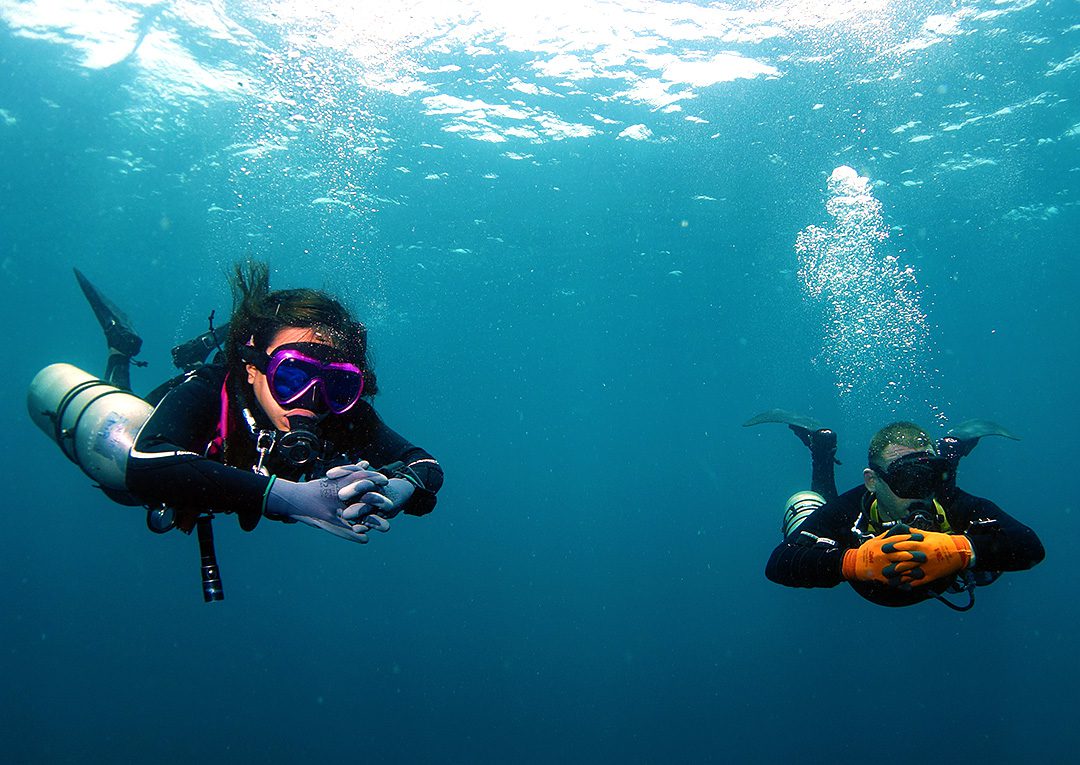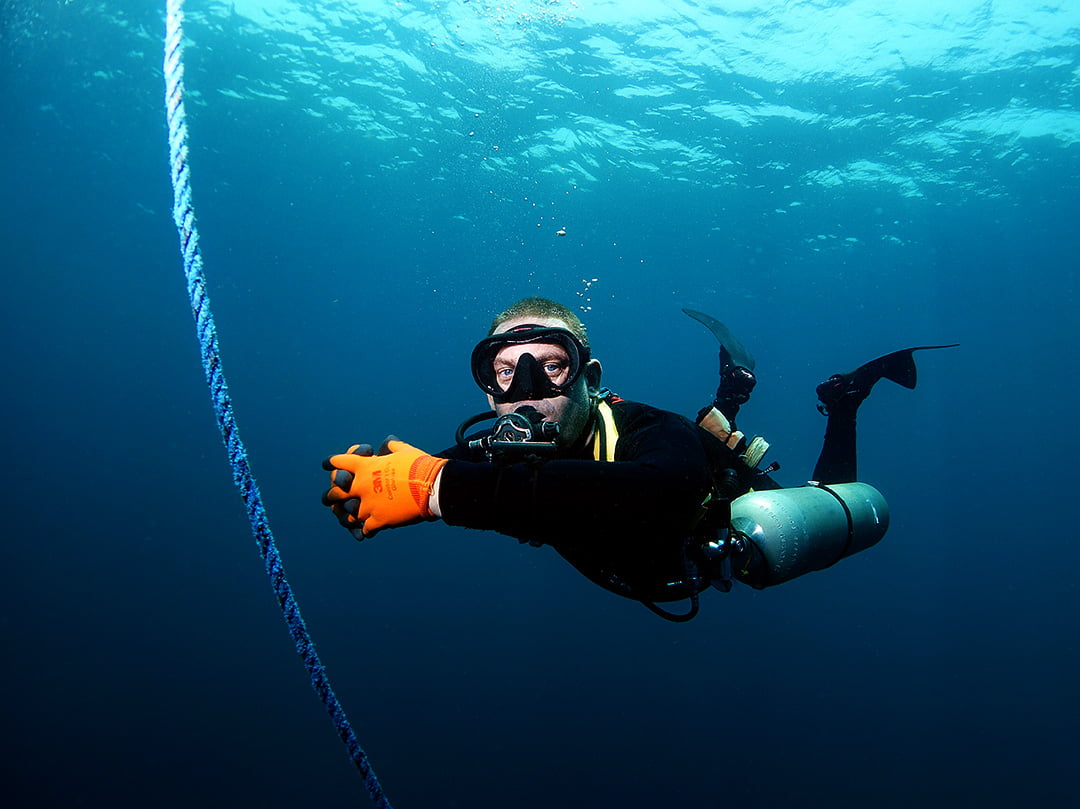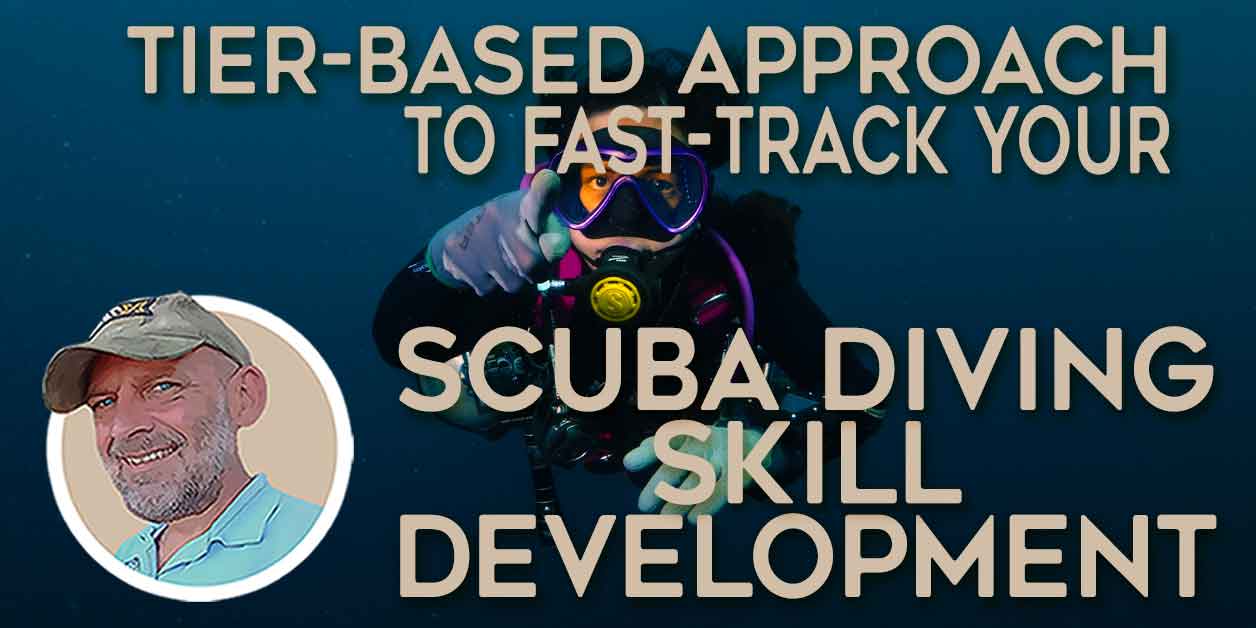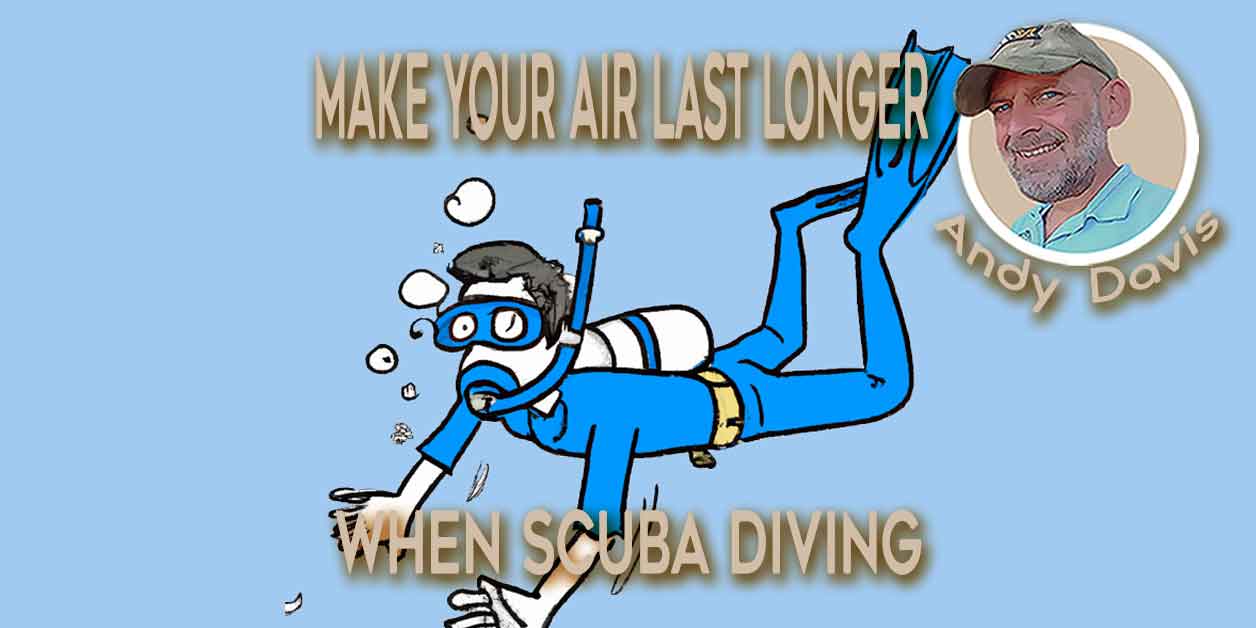The Secret To Improving Your Air Consumption For Scuba Diving
I encounter many novice divers who are dissatisfied, even frustrated, by their air consumption whilst scuba diving.
High air consumption is often the controlling limit on dive time for novice-intermediate level divers. It really sucks to head to the surface because you’ve burned through your air quickly.
What factors decide a diver’s air consumption?
In searching for a solution to high air consumption, too many divers focus on altering their breathing. It’s a flawed approach and fails to acknowledge that our respiratory cycle is driven by two physiological factors:
Oxygen Demand
Our bodies metabolize oxygen (O2) when muscles and organs function. The more we use our muscles, the more oxygen we require.
- Reducing oxygen demand lowers our respiration rate. We can achieve this through two means; firstly, and most importantly, by lowering our level of exertion in the water.
- Secondly, by improving our cardiovascular fitness. However, you don’t need to be a super-athlete if you aren’t breaking a sweat in the first place.
Carbon Dioxide Retention
The urge to breathe is actually dictated by the carbon dioxide (CO2) level in our lungs (not the oxygen level, as many assume).
- CO2 is created as a product of respiratory metabolism in the body and we expel it whenever we exhale.
- A full, deep breathing pattern efficiently removes the CO2 from our airways and slows our respiratory cycle.
- Likewise, reducing our respiratory metabolism (lowering exertion) reduces CO2 production in our bodies.
More exertion equals more air consumption
Novice divers don’t understand the level of unnecessary exertion they experience on scuba dives.
Exertion is caused by physically compensating for imperfect buoyancy control.
The profound effect of water resistance when trim isn’t optimal and superfluous body movements; such as sculling with the hands.
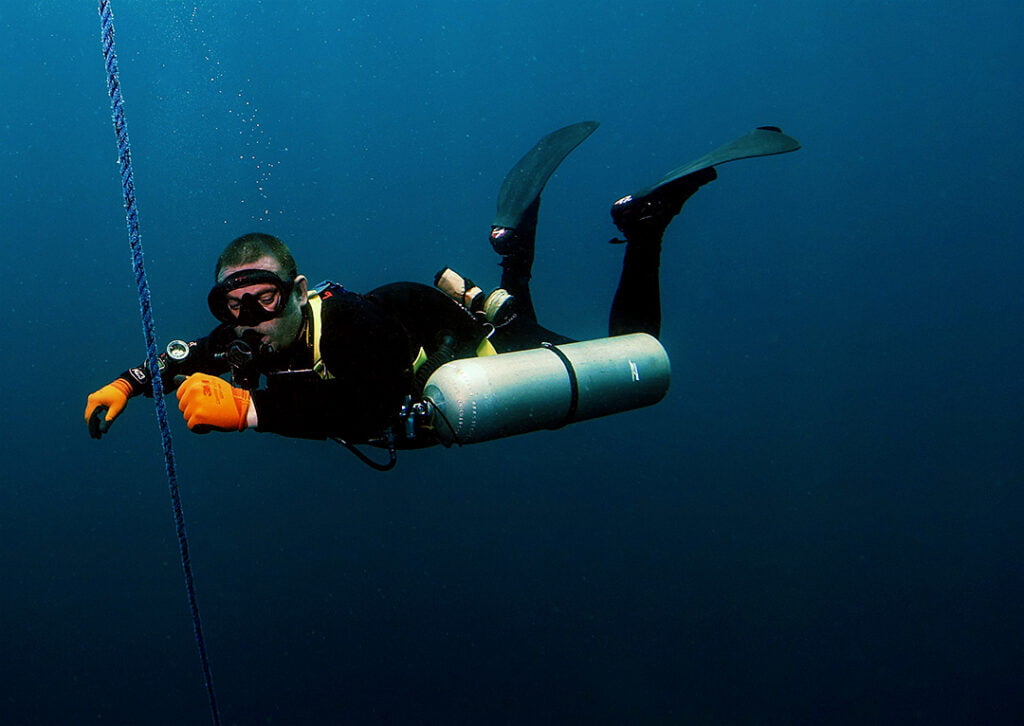
Improving fundamental skills reduces exertion
The BEST way to see an immediate improvement in air consumption is to focus on perfecting your fundamental dive skills;
- Neutral buoyancy
- Effective propulsion
- Horizontal trim
- Static control
- Precision maneuvering
Sadly, these skills are rarely perfected in novice scuba training; so the individual diver needs to devote some time and attention to practicing these fundamentals once qualified.
Fancy breathing techniques aren’t as effective
Many beginner divers often stress about reducing their air consumption and try to control their breathing patterns. However, this approach is not effective.
Artificially manipulating your breathing by taking shallow breaths or pausing doesn’t help and can actually increase carbon dioxide retention, causing you to breathe more rapidly.
Novice divers receive advice to breathe “shallow,” “lightly,” or “relaxed,” but these concepts are often not fully explained.
Unfortunately, many new divers misinterpret this advice, leading to frustration as they search for a “magic method” to lower their air consumption.
In reality, there is no magic solution or secret formula. To understand how to breathe efficiently while diving, pay attention to your breathing in everyday situations:
- How do you breathe during a light jog?
- What’s your breathing like when you’re shopping?
- How about when you’re lounging on the couch?
- And when you wake up in the morning, lying in bed?
Efficient, relaxed breathing occurs when you are at rest, both physically and mentally. It’s about finding a natural, comfortable rhythm rather than trying to force a specific pattern.
The only way to do that is to lower exertion… to make our dives as effortless as possible.
This happens naturally as we gain experience, and this is why divers often notice improvements in their air consumption over time.
But for the novice diver, the fast track to those benefits is focus and commitment to perfecting their fundamental skills; buoyancy, trim, propulsion, and control.
If you struggle to improve your fundamental diving skills, then consider getting expert help to refine your diving techniques.
Gas Management For Scuba Divers
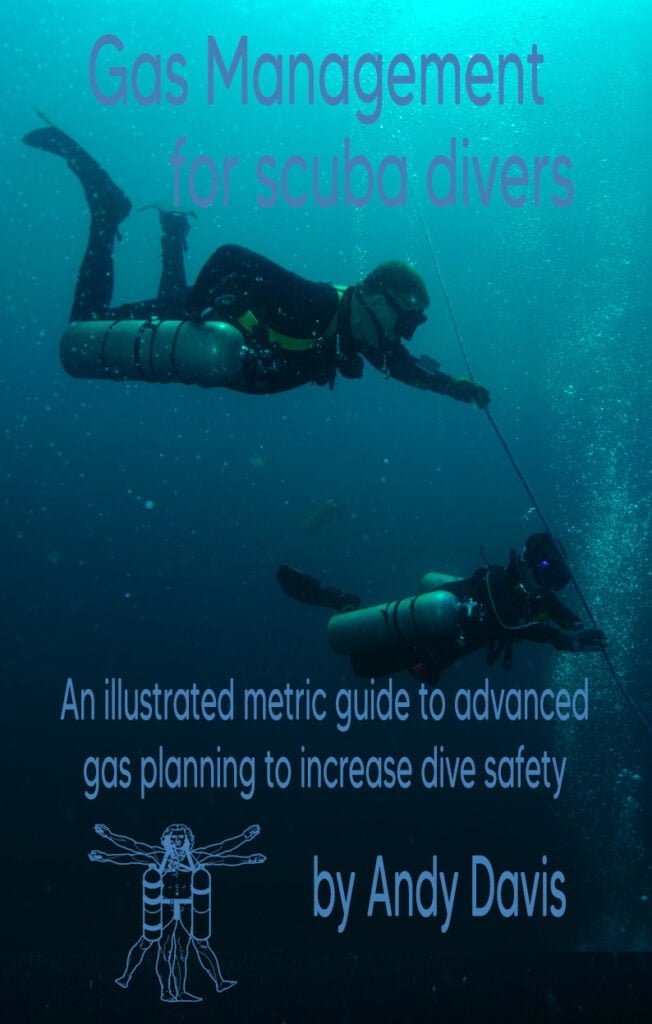
The comprehensive, illustrated, metric guide to advanced gas planning and management for safer scuba diving. Only $9!
60 Pages. Printable PDF format. Fully Illustrated.
Consider a fundamentals skill course
There is an increasing range of such courses available to divers nowadays; ranging from basic and cheap ‘Peak Performance Buoyancy’ classes through to extensive and demanding courses like the GUE ‘Fundamentals’ class.
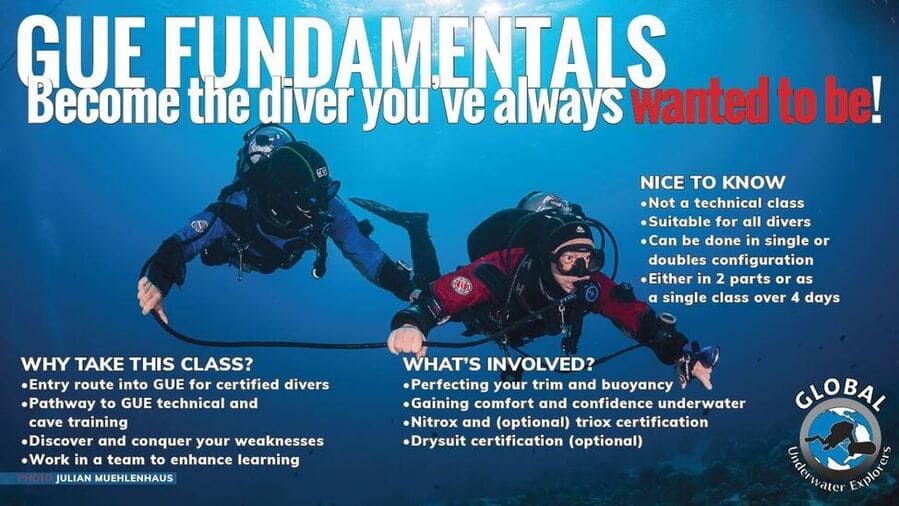
In addition, many technical diving instructors offer developmental classes and clinics in core scuba skills – you don’t have to plan to do decompression diving in order to reap the benefits of learning technical-level fundamental skills from a tech instructor…
Sorry folks… no magic recipes… only some genuine advice to commit some time and practice to improve your fundamental diving skills.
Gas Management For Scuba Divers

The comprehensive, illustrated, metric guide to advanced gas planning and management for safer scuba diving. Only $9!
60 Pages. Printable PDF format. Fully Illustrated.
About The Author

Andy Davis is a RAID, PADI TecRec, ANDI, BSAC, and SSI-qualified independent technical diving instructor who specializes in teaching sidemount, trimix, and advanced wreck diving courses.
Currently residing in Subic Bay, Philippines; he has amassed more than 10,000 open-circuit and CCR dives over three decades of challenging diving across the globe.
Andy has published numerous diving magazine articles and designed advanced certification courses for several dive training agencies, He regularly tests and reviews new dive gear for scuba equipment manufacturers. Andy is currently writing a series of advanced diving books and creating a range of tech diving clothing and accessories.
Prior to becoming a professional technical diving educator in 2006, Andy was a commissioned officer in the Royal Air Force and has served in Iraq, Afghanistan, Belize, and Cyprus.
In 2023, Andy was named in the “Who’s Who of Sidemount” list by GUE InDepth Magazine.
Purchase my exclusive diving ebooks!
Originally posted 2018-03-07 23:57:01.


